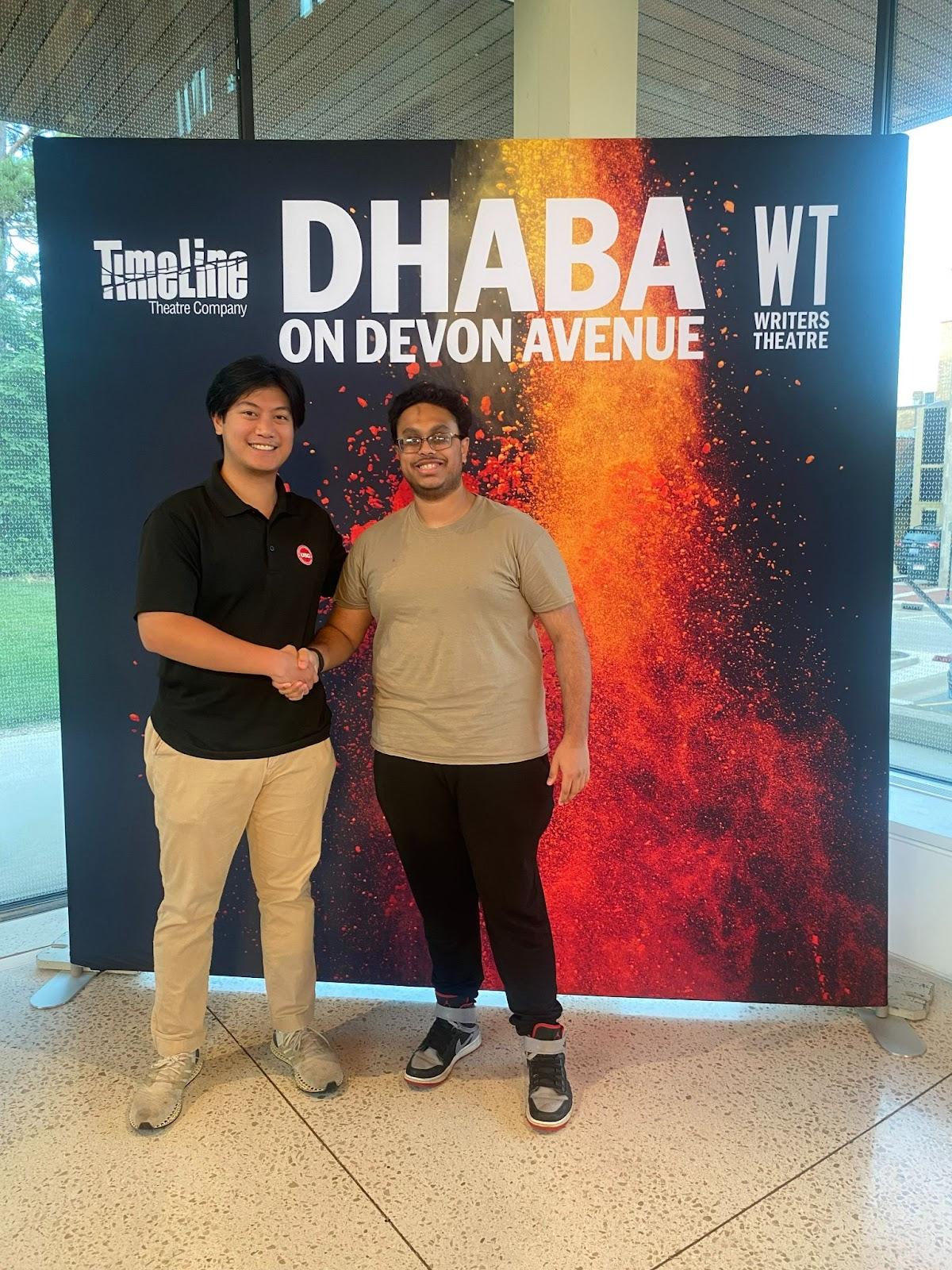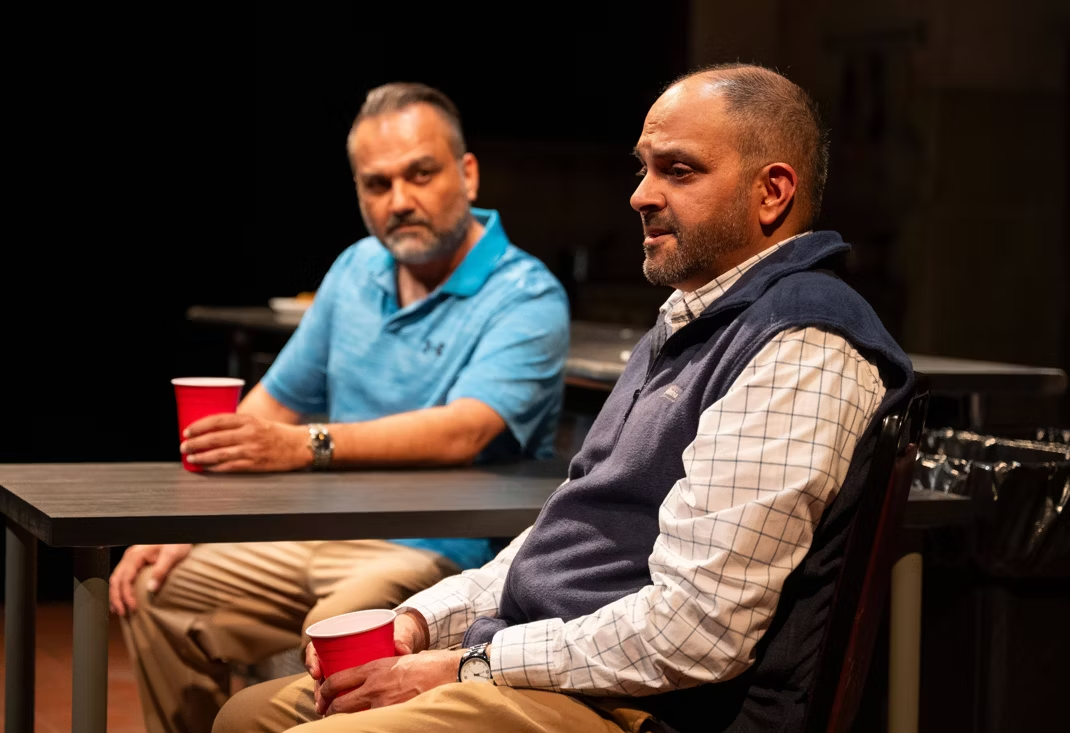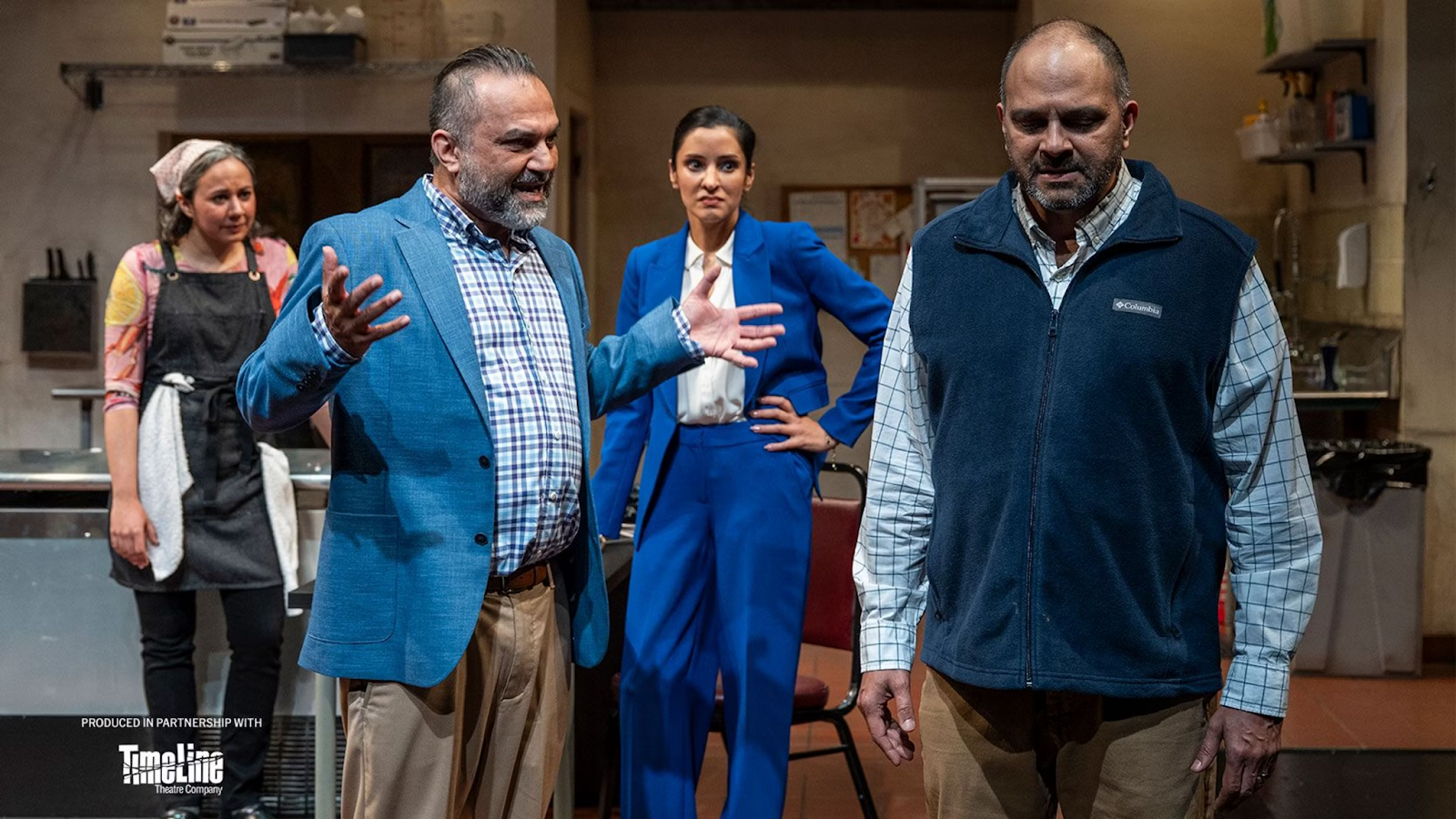In Dhaba on Devon Avenue, the bustling life of Chicago’s Little India comes alive in a story of food, family, and the weight of expectations. Written by Madhuri Shekar and directed by Chay Yew, the play unfolds in a seemingly unassuming family-owned restaurant along Devon Avenue. But this modest place is more than a business, it is a symbol of migration, sacrifice, and identity. With its intimate setting and emotional core, this production resonates with anyone who has experienced the push and pull of tradition and change.
To get a closer look at how the play resonated, I spoke with two friends — Matthew and Mohammed — who witnessed it together. Relaying their impressions, we saw a vivid picture of a performance that is both culturally specific and universally relatable.

First Impressions
For Matthew, the chance to see Dhaba on Devon Avenue came as a surprise gift: “I won tickets through Chicago Asian Network, and I was very excited because I want to see more plays in my life and experience more live theater,” he shared. Knowing Devon Avenue propelled his interest to watch more.
For Mohammed, the authenticity stood out from the beginning: “What really made me want to see Dhaba on Devon Avenue was its appeal as a real-life story about intra-family struggles that weren’t filtered out.” He continued saying that the play looked authentic, “it looked to any other family you may come across.”
From the outset, the play promised not only entertainment but also recognition.

Themes That Resonate
At its core, Dhaba on Devon Avenue is about more than a restaurant. It’s about the generational weight carried by children of immigrants. “The theme of immigrant parents having huge expectations for their children was a big message of the play,” Matthew said. Sindhu, the high achiever who left for California, and Rita, who stayed to run the family business, represent different paths but bear the same pressure: to excel and uphold the family’s legacy.
For Mohammed, the story was a mirror of messy, real-life relationships. “The play shows the older, more traditional mentality clashing with the new generation’s ideas and aspirations. It resonated with me — and, I think, the audience as a whole — because every family has dynamics where the old way is confronted by a new way.”

Atmosphere & Standout Moments
The production’s polish and flow impressed both friends, particularly the way it moved between scenes and handled monologues. “The atmosphere felt tense,” Matthew recalled, “because the restaurant was closing, and you could feel the stress of the characters about what would happen to the family if the store closed.”
At the same time, the play’s intimacy left a deep impression. “The best way I can describe it is that it was very intimate,” Mohammed said. “The setting wasn’t massive, so it felt like, as an audience member, you were right there to see, hear, and feel every bit of the performance and emotions that the actors were displaying.”
In fact, certain moments stuck with them long after the curtain fell. For Matthew, it was the father’s frustrated confrontation with his daughters — a scene that illustrated the stubbornness of immigrant parents who insist on “doing it their way.” For Mohammed, it was Sindhu’s long-awaited confrontation with her father, where she voiced the struggles of choosing her own path against his expectations. “The rejection she felt from her dad as a result,” he recalled, “was heartbreaking.”
A Shared Takeaway
Beyond the heavier themes, Matthew and Mohammed had fun reflecting on the play. Asked to sum it up in a single word, Matthew said “thought-provoking,” while Mohammed chose “impactful.”
They even imagined casting each other in roles. Matthew saw his friend as Rita Madhwani for his driven nature, while Mohammed thought of him as Adil for his lighthearted humor and deep care for family and friends.
If the play were a dish, both agreed it would be chicken masala — rich, spicy, and full of flavor, with ups and downs that mirror the family’s story. And if they had to write a tagline together, their shared response was simple but fitting: Why you need to support small businesses.
In the end, both friends walked away with concise but meaningful takeaways. Matthew summed it up as “A good story with good actors for a good time!” while Mohammed called it a play that “perfectly captures the love and hate relationships that all families endure in their quest to ultimately find common ground and be seen for who they are.”
Dhaba on Devon Avenue is not just any family drama. It is a feast of emotions, identities, and experiences that reflect the complexity of community life. Through its intimate staging and heartfelt performances, it reminds us that every meal shared — and every story told — carries generations within it.
For more exciting articles, keep in touch and stay connected by following us on our socials Facebook, Instagram, LinkedIn, and Tiktok and we’ll make sure you’re updated!







%20-%20%20320x400%20(1).png)





%20-%20%20%20728x90%20(1).png)
